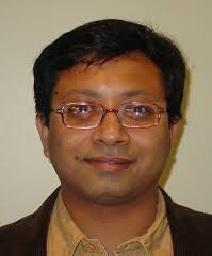Belton, Valeria. and Stewart, Theodor. J. (2002). Multiple Criteria Decision Analysis: An Integrated Approach, Kluwer Academic, Dordrecht, ISBN: 978-1-4615-1495-4.2) Charnes, A. and Cooper, W. W. (1961). Management Models and Industrial Applications of Linear Programming, John Wiley & Sons, ISBN: 9780471148500.3) Ehrgott, M., Figueira, J. R. and Greco, S. (Eds). (2010). Trends in Multiple Criteria Decision Analysis, Springer, ISBN: 978-1-4419-5903-4.4) Gal, T., Stewart T. J. and Hanne T. (1999). Multicriterion Decision Making, Springer Verlag, ISBN: 978-1-4613-7283-7.5) Greco, S., Ehrgott, M. and Figueira, J. R. (2010). Trends in Multiple Criteria Decision Analysis, Springer Verlag, ISBN: 9781441959041.6) Hwang, Ching-Lai. and Yoon, Kwangsun. (1981). Multiple Attribute Decision Making Methods and Applications A State-of-the-Art Survey in Lecture notes in Economics and Mathematical Systems, 186, Springer-Verlag, Berlin, ISBN: 978-3-540-10558-9.7) Keeney, R. L. and Raiffa, H. (1993). Decisions with Multiple Objectives: Preferences and Value Tradeoffs, Cambridge University Press, ISBN: 0-521-44185-4.8) Pomerol, Jean-Charles. and Barba-Romero, S. (2000). Multicriterion Decision in Management: Principles and Practice, Kluwer Academic Publishers, ISBN: 0-7923-7756-7.9) Saaty, Thomas L. (1994). How to make a decision: The Analytic Hierarchy Process, Interfaces, 24, 19–43.10) Saaty, Thomas L. (1996). Decision Making with Dependence and Feedback: The Analytic Network Process, RWS Publications, ISBN: 0-9620317-9-8.11) Tzeng, Gwo-Hshiung. and Huang Jih-Jeng. (2011). Multiple Attribute Decision Making: Methods and Applications, CRC Press Taylor & Francis, ISBN: 978-1-4398-6157-8.

DOWNLOAD APP
FOLLOW US